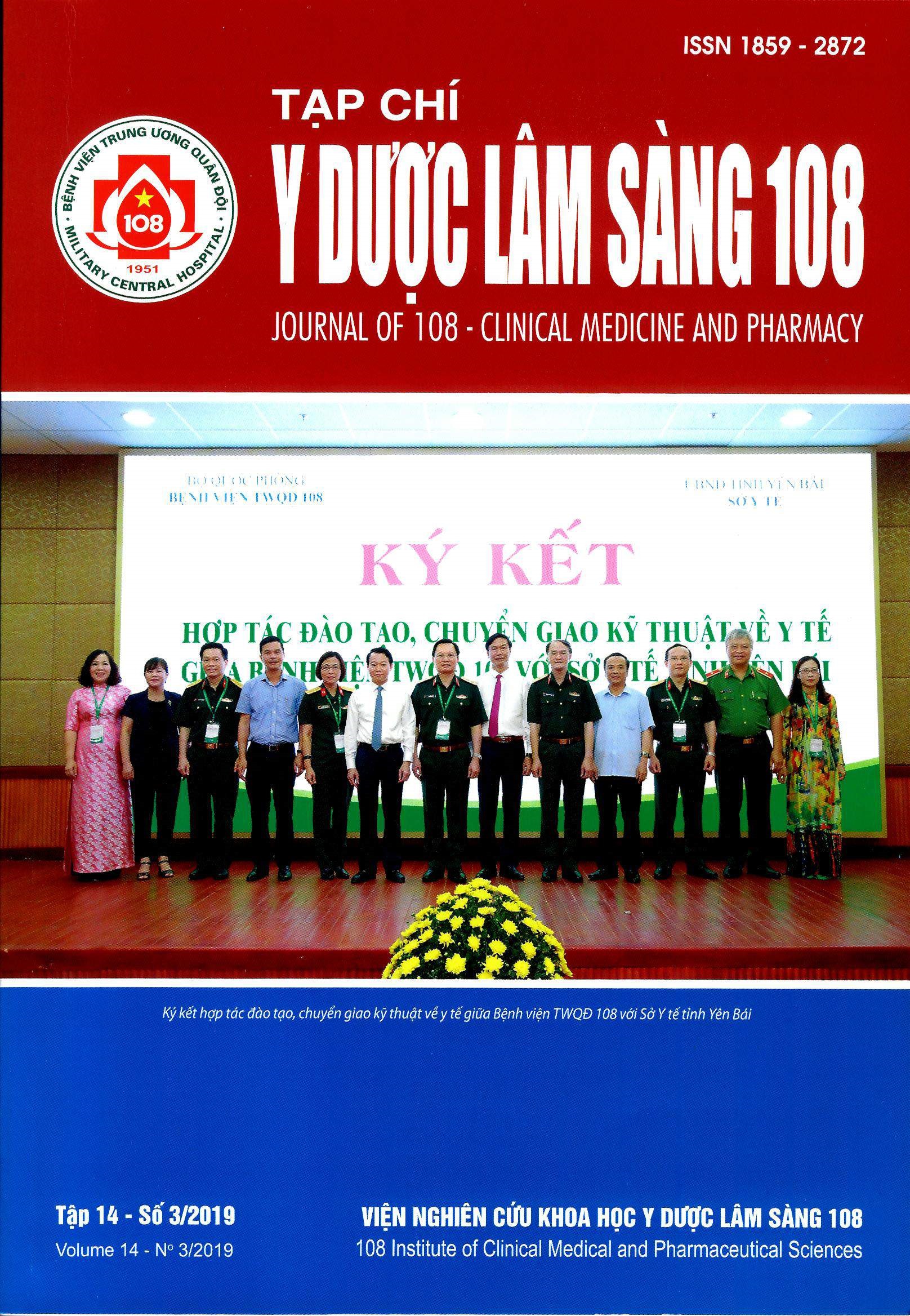Establishing an assay for identifying PIK3CA gene mutation using in evaluating the response to aspirin in colorectal cancer patients
Main Article Content
Keywords
Abstract
Summary
Objective: To establish a molecular assay for identifying mutational status of PIK3CA in colorectal cancer patients who are in considering to use aspirin-based therapies. Subject and method: 26 colorectal cancer patient samples were recruited into this study. Whereas PIK3CA mutant carrier cell lines MCF-7, H460, HTC116 were cultured and mixed against wild-type PIK3CA cell lines Hela to form a dilution series of 50%, 25%, 5%, 1%, 0.1%, 0%. This dilution series was then subjected to total DNA extraction and latter for the defining the limit of detection (LoD) of the Amplification refractory mutation system (ARMS) based allele specific PCR approach for detecting 1633G > A (exon9) 3140A > G (exon 20) mutations of PIK3CA gene. Result: Our data revealed that PCR-ARMS for identifications of PIK3CA 1633G > A (exon 9) and 3140A > G (exon 20) was established with limits of detection at 1% mutant allele. Additionally, by using the newly established approach, 3 out of amongst 26 recruited samples, were detected to carry PIK3CA mutant alleles. Conclusion: The assay for molecular geneotyping of PIK3CA was established with detection limits of 1%.
Keywords: Colorectal cancer, PIK3CA, aspirin.
Article Details
References
2. Schmoll HJ et al (2012) ESMO Consensus Guidelines for management of patients with colon and rectal cancer. A personalized approach to clinical decision making. Ann Oncol 23(10): 2479-2516.
3. Allegra CJ et al (2009) American Society of Clinical Oncology provisional clinical opinion: Testing for KRAS gene mutations in patients with metastatic colorectal carcinoma to predict response to anti-epidermal growth factor receptor monoclonal antibody therapy. J Clin Oncol 27(12): 2091-2096.
4. Normanno N et al (2009) Implications for KRAS status and EGFR-targeted therapies in metastatic CRC. Nat Rev Clin Oncol 6(9): 519-527.
5. De Roock W et al (2011) KRAS, BRAF, PIK3CA, and PTEN mutations: Implications for targeted therapies in metastatic colorectal cancer. Lancet Oncol 12(6): 594-603.
6. Karapetis CS et al (2008) K-ras mutations and benefit from cetuximab in advanced colorectal cancer. N Engl J Med 359(17): 1757-1765.
7. Amado RG et al (2008) Wild-type KRAS is required for panitumumab efficacy in patients with metastatic colorectal cancer. J Clin Oncol 26(10): 1626-1634.
8. Liao X et al (2012) Aspirin use, tumor PIK3CA mutation, and colorectal-cancer survival. N Engl J Med 367(17): 1596-1606.
9. Chan AT, Ogino S, Fuchs CS (2007) Aspirin and the risk of colorectal cancer in relation to the expression of COX-2. N Engl J Med 356(21): 2131-2142.
10. Algra AM and PM Rothwell (2012) Effects of regular aspirin on long-term cancer incidence and metastasis: A systematic comparison of evidence from observational studies versus randomised trials. Lancet Oncol 13(5): 518-527.
11. Rothwell PM et al (2010) Long-term effect of aspirin on colorectal cancer incidence and mortality: 20-year follow-up of five randomised trials. Lancet 376(9754): 1741-1750.
12. Rothwell PM et al (2012) Effect of daily aspirin on risk of cancer metastasis: A study of incident cancers during randomised controlled trials. Lancet, 2012. 379(9826): 1591-1601.
13. Martini M et al (2012) Targeted therapies: how personal should we go? Nat Rev Clin Oncol 9(2): 87-97.
14. Rothwell PM et al (2011) Effect of daily aspirin on long-term risk of death due to cancer: Analysis of individual patient data from randomised trials. Lancet 377(9759): 31-41.
15. Kalinsky K et al (2009) PIK3CA mutation associates with improved outcome in breast cancer. Clin Cancer Res 15(16): 5049-5059.
16. Janku F et al (2012) PI3K/AKT/mTOR inhibitors in patients with breast and gynecologic malignancies harboring PIK3CA mutations. J Clin Oncol 30(8): 777-782.
 ISSN: 1859 - 2872
ISSN: 1859 - 2872
